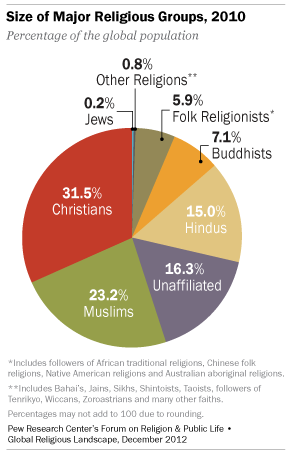2010 (1)
2011 (1)
2013 (42)
2018 (128)
2020 (783)
2021 (1188)
2022 (1546)
2024 (1287)

哈佛神學院院長David Hempton在校報訪談中,談了解宗教的意義:
GAZETTE: What’s the role of a Divinity School in today’s world? Why is it important to study religion?
HEMPTON: There is a historical argument to be made. It’s impossible to understand past civilizations without understanding religion. Religion is a major part of the history of civilization, but it’s also the lived experience, the faith and practice, of the great majority of the world’s populations. Why wouldn’t that be important? Also, we’re entering a complicated world order, which is going to be increasingly pluralistic religiously as part of the globalization process and population migrations. We’re trying to educate people to be religiously literate in the best sense of the word, because we’re going to need people who understand how to deal with that greater pluralism, leaders who understand more than one religious tradition, not merely in an algebraic way, in the sense of symbols and equations, but with a deep empathy and understanding of what those traditions are and why they’re lived, dynamic, and life-shaping.
相關統計數據:
 The demographic study – based on analysis of more than 2,500 censuses, surveys and population registers – finds 2.2 billion Christians (32% of the world’s population), 1.6 billion Muslims (23%), 1 billion Hindus (15%), nearly 500 million Buddhists (7%) and 14 million Jews (0.2%) around the world as of 2010. In addition, more than 400 million people (6%) practice various folk or traditional religions, including African traditional religions, Chinese folk religions, Native American religions and Australian aboriginal religions. An estimated 58 million people – slightly less than 1% of the global population – belong to other religions, including the Baha’i faith, Jainism, Sikhism, Shintoism, Taoism, Tenrikyo, Wicca and Zoroastrianism, to mention just a few.1
The demographic study – based on analysis of more than 2,500 censuses, surveys and population registers – finds 2.2 billion Christians (32% of the world’s population), 1.6 billion Muslims (23%), 1 billion Hindus (15%), nearly 500 million Buddhists (7%) and 14 million Jews (0.2%) around the world as of 2010. In addition, more than 400 million people (6%) practice various folk or traditional religions, including African traditional religions, Chinese folk religions, Native American religions and Australian aboriginal religions. An estimated 58 million people – slightly less than 1% of the global population – belong to other religions, including the Baha’i faith, Jainism, Sikhism, Shintoism, Taoism, Tenrikyo, Wicca and Zoroastrianism, to mention just a few.1

 數據源於:
數據源於:
http://www.pewforum.org/2012/12/18/global-religious-landscape-exec/



